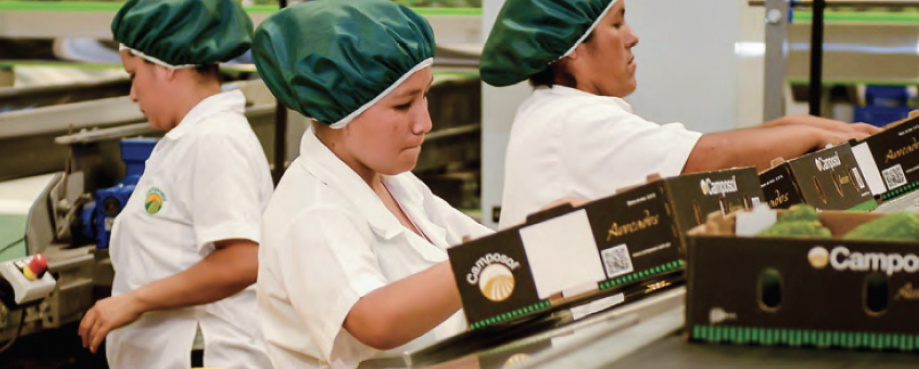
The turmoil taking place in Central and South America recently – workers and their families displaced, under threat, desperate for a new and better start in life - has been receiving deserved attention in the media.
While most of the issues are not new, our ETI member companies share many of the same humanitarian concerns anyone would have hearing such grim reports of cyclical poverty. These circumstances also create concerns about the stability and sustainability of supply, which is critical to business models and meeting consumers’ expectations. When workers and communities are trapped in persistent hardship and there appears to be no hope of improvement, can we really expect a well-motivated and efficient workforce to meet ever-growing global demands?
With this challenge in mind, ETI and a group of our members, has published a new study on labour practices in three Latin American countries to capture some of the employment policies and practices that offer models for improvement in the industry and define what ‘good’ looks like today. The study shines a light on progressive attitudes and behaviours among some companies and their worker representatives, including trade unions, and examines in detail the experiences of management and workers at a Peruvian company, Camposol, in particular.
Unsurprisingly, the study found that challenging, often long-running, labour disputes are common; however, in some companies there has been a cultural shift towards the recognition that conflict does not need to be the norm for labour relations. Indeed, in the case of Camposol, management recognised the need to establish a new kind of relationship with workers and the trade unions that represent them, one based on “social dialogue” and mutual respect. This, in turn, has led to greatly improved worker-management relationships, creating pathways by which the many challenges faced by business and the thousands of individual employees can be acknowledged and collaborative solutions found.
So what next? We aim for this study to provide a platform for further dialogue and for improved labour relations among companies in Latin America. We are exploring with a number of interested parties how best to share this learning and to bring about further improvements to employment relationships across wider industry sectors. Those interested to discuss the contents of this study and how they might contribute to further progress in Latin American labour relations, please do contact ETI.
